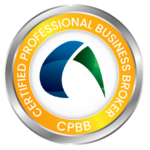
Selling Your Practice? Here’s What You Need to Know
Selling your accounting or professional services practice is a significant decision—one that can shape your financial future and professional legacy. Whether you’re planning to retire, pivot to a new venture, or simply step away from ownership responsibilities, a well-structured exit strategy is key to maximising value and ensuring a smooth transition.
So, what should you consider before selling your practice? Here’s a roadmap to get you started:
1. Know Your Numbers
Buyers want a clear picture of your practice’s financial health. This means having up-to-date financial statements, tax returns, and client revenue breakdowns. Recurring revenue, client retention rates, and profitability metrics are major factors in determining your business’s value. If your numbers are in great shape, your practice will be more attractive to potential buyers.
2. Understand Your Client Base
Not all clients are valued equally. A well-diversified, stable, and engaged client base is a significant selling point. Buyers often look for consistency in client retention, minimal client concentration risk (i.e., not relying too heavily on a small percentage of high-value clients), and opportunities for growth. If your practice has strong client relationships and a good reputation, it will command a higher price.
3. Get Your Team Ready
If you have employees, their roles, experience, and willingness to stay post-sale can impact your practice’s appeal. Buyers often want to retain key team members to ensure continuity and client retention. Open and strategic communication with your team, when appropriate, can make the transition smoother.
4. Streamline Your Operations
Efficient, well-documented business processes make your practice more attractive to buyers. Whether it’s workflow automation, cloud-based accounting software, or documented client onboarding procedures, the easier it is for a buyer to step in, the more appealing your practice becomes. If you’re still running things manually, now is a good time to modernise!
5. Determine Your Ideal Buyer
Who do you envision taking over your practice? Another sole practitioner? A larger firm looking to expand? A strategic buyer from an adjacent professional services field? Defining your ideal buyer profile will help shape your marketing strategy and negotiations. Some buyers may prioritise growth opportunities, while others may be looking for a turn-key operation with minimal changes.
6. Prepare for Due Diligence
Serious buyers will conduct thorough due diligence before finalising a deal. They’ll want to review client contracts, lease agreements, staff contracts, and compliance records. Having all documentation organised and ready will help speed up the process and instill confidence in buyers.
7. Plan Your Transition Strategy
Most buyers will want some level of transition support to ensure client retention. Whether it’s a short handover period or a structured earn-out agreement, planning for a smooth transition can help secure the best deal. Be clear on how involved you are willing to be post-sale.
8. Work with an Experienced Broker
Selling a professional services practice is different from selling a retail business or a product-based company. An experienced broker—one who understands the nuances of accounting, bookkeeping, and professional services firms—can help you navigate valuations, negotiations, and deal structures. They can also connect you with qualified buyers and ensure confidentiality throughout the process.
Ready to Explore Your Options?
Selling your practice is a big step, but with the right preparation, you can achieve a smooth and profitable transition. If you’re considering selling—or just want to understand what your practice might be worth—I’d love to have a conversation with you.
Reach out today for a confidential discussion about your next steps!








